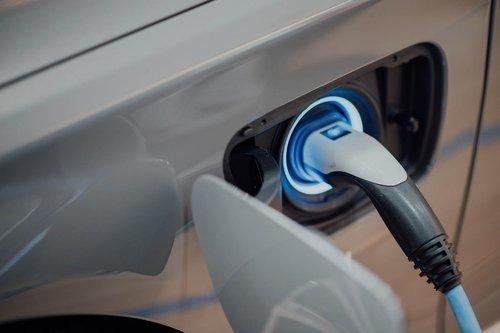
NanoGraf, an advanced silicon anode battery material company enabling stronger, lighter, and longer-lasting lithium-ion batteries, announced it has been awarded a $60 million grant from the U.S. Department of Energy’s Office of Manufacturing and Energy Supply Chains under the Bipartisan Infrastructure Law (BIL) fund supporting new and expanded commercial-scale domestic battery manufacturing projects. Additional matching grant dollars may also become available to fund the project from the Make it in Michigan Competitiveness Fund, administered through the Michigan Infrastructure Office.
NanoGraf will use the grant, in addition to its own capital, to retrofit an existing manufacturing facility in Flint, Michigan. At full capacity, the advanced production facility will produce 2,500 tons per year of NanoGraf’s proprietary silicon anode material – enough material to supply 1.5 million electric vehicles (EVs) per year.
The combined $175 million investment, with additional funds coming from NanoGraf, will create one of the world’s largest silicon anode facilities, significantly advancing U.S. efforts to onshore the battery supply chain and enhancing the performance of domestically made lithium-ion batteries.
“As a U.S.-based and U.S.-founded company, we’re committed to strengthening the domestic battery supply chain—and this factory is a big step forward,” said Francis Wang, CEO of NanoGraf. “Our expansion into Michigan will allow us to leap to larger scale production to meet national demands for high-performing EV batteries and consumer electronics.”
“This next stage of our growth further propels our position as a global leader in the race to electrification while also supporting communities at the local level by strengthening union relationships and building a skilled battery manufacturing workforce in the Midwest,” adds Wang.
The Flint factory is NanoGraf’s third battery material production facility and increases the company’s total manufacturing footprint to over 414,000 square feet. NanoGraf currently produces silicon anode material for the U.S. military out of two Chicago-based manufacturing facilities, including a new R&D facility at 455 N Ashland Avenue and its headquarters at 400 N Noble Street. Of note, NanoGraf recently announced it was supplying batteries to Thales Defense & Security Inc. for the handsets used by soldiers in the field.
"We are thrilled to welcome NanoGraf to Flint," said Sheldon Neeley, Mayor of Flint. "The combined investment from NanoGraf and the Department of Energy will ensure domestic access to innovative battery technology, meeting future demand for higher-performing EVs, and creating high-paying jobs that will benefit Flint for years to come.”
The project will create approximately 200 construction jobs through a project labor agreement with the North American Building Trades Union. Up to 150 new permanent jobs will be created for operations, approximately 80% of which are expected to come directly from the local community. NanoGraf has signed a neutrality agreement with the United Steelworkers and is committed to partnering with them should a majority of employees wish to be represented by the union.
The company’s Michigan expansion will include the rollout of a community benefits program focused on workforce development, education, apprenticeships, and comprehensive benefits that reflect the needs of the community.
NanoGraf’s headquarters, military-focused production facilities, and R&D operations will remain in Chicago.
